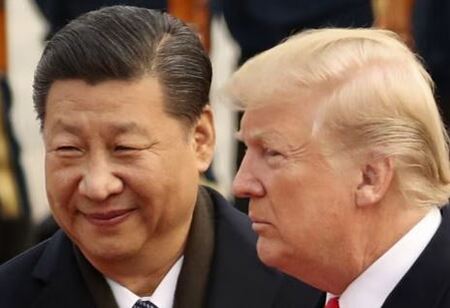
Trump Extends China Tariff Suspension for Another 90 Days


To prevent a tariff war between the two biggest economies in the world until November 10, US President Donald Trump extended a trade truce with China for an additional 90 days.
Additionally, China's Commerce Ministry announced that it would halt further duties on US goods for an additional 90 days.
China promised to address non-tariff barriers hurting US imports and reaffirmed its intention to maintain 10 percent tariffs on US goods.
August 12 was the expiration date of the Washington-Beijing tariff truce. Following the most recent round of talks between US and Chinese trade officials in Stockholm last month, the tariff deadline was anticipated to be postponed.
In the absence of an extension, US tariffs on Chinese imports would have returned to their highest points during the height of the trade dispute in April.
Also Read: Auto Guangzhou 2023: Cars, Vehicle Tech Steering the Automobile Race
After discussions in Geneva, the two nations had first decided in May to halt the majority of tariffs for ninety days.
The tariff extension allays short-term concerns about rising tensions that have previously shook international markets.
Trade tensions escalated earlier this year when the US raised duties on Chinese imports to as high as 145 percent, which prompted Beijing to retaliate with limits on exports of rare earth elements that are essential to American manufacturing.
In accordance with the initial 90-day truce reached in May, China decreased its tariffs on US goods to 10 percent and resumed exporting rare earth magnets, while the US lowered its tariffs on Chinese goods to 30 percent.
By extending this truce, both parties will have more time to resolve unresolved issues, such as US tariffs associated with the trafficking of fentanyl and worries about China's imports of oil from Iran and Russia that are subject to sanctions.
Also Read: Fathers Outgrow Confucian Law, Save South Korea's Birth Rate?
In late October, when the US president is due to attend an international summit in South Korea, the extension may also allow Trump to visit China for discussions with President Xi Jinping.
Even though Trump has relaxed export restrictions, the sale of sophisticated artificial intelligence (AI) processors is still a controversial topic. In order to receive export licenses, Nvidia Corp. and Advanced Micro Devices (AMD) reached deals to pay the US government 15 percent of the sales of specific Chinese AI chips. Trump said that he might be open to Nvidia selling China a less sophisticated version of its most sophisticated AI processor, saying "it’s possible I’d make a deal."
Nonetheless, in late July, Chinese authorities called Nvidia to address purported security flaws in its H20 processors, indicating continued mistrust in the technology industry.
This tariff extension is part of the Trump administration's larger plan to impose industry-specific levies and reciprocal duties on several nations. In addition to levies from Trump's first term, the current US tariff rate on Chinese imports includes a 10 percent baseline duty and a 20 percent charge linked to fentanyl trafficking.

